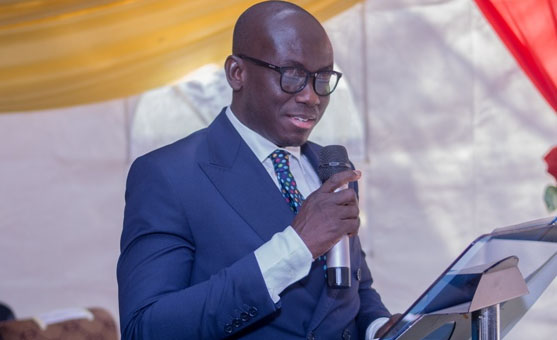Godfred Yeboah Dame
The Attorney General and Minister for Justice, Godfred Yeboah Dame, has affirmed the authority of the General Legal Council (GLC), saying that Parliament has no power to ‘direct and control’ the process of admission into the Ghana School of Law (GSL).
According to him, the mode of exercising legislative power as enshrined in Article 106 of the Constitution does not admit parliamentary ‘resolutions’, saying that the executive arm is the one vested with the power to direct and advise the General Legal Council on major matters of national importance.
Mr. Dame explained that even the executive exercises such powers through the Attorney General and Minister for Justice.
MPs during their sitting on Friday, October 29, 2021 passed a resolution in which they directed the GLC to “proceed and admit all the students who passed in accordance with the advertised rules of the examinations.”
The resolution also stated, “The Attorney General is the leader of the bar in Ghana and he must see to it that the directive that 499 students who scored 50 marks are admitted is complied with. We do not want to get contempt of Parliament issues.”
But responding to directives by Parliament, the Attorney General (AG) said “whilst recognising the general legislative powers of Parliament in Ghana, except as have been circumscribed by the Constitution, I am constrained to advise that Parliament has no such power through the use of Parliamentary resolutions, to control the process of admission into the Ghana School of Law.”
He noted in a letter to Parliament that “in accordance with section 13(1)(e) and (f) of the Legal Profession Act, 1960 (Act 32),” the power to regulate admission of students to pursue courses of instruction leading to qualification as lawyers and the holding of examinations, including preliminary, intermediate and final examinations, had been vested in the GLC.
“It is correct that section 1(5) of Act 32 stipulates thus: ‘The Council shall in the performance of their functions comply with any general directions given by the Minister,” he added.
Mr. Dame indicated that by a letter dated October 18, 2021 received at his office on October 21, 2021, President Akufo-Addo forwarded the contents of a petition by the “499 candidates” to him for his comments in order to enable the President to respond appropriately.
He disclosed that another petition dated October 20, 2021 by the National Association of Law Students was also delivered to the President.
“Upon delivery of my comments on the matters raised in both petitions and following further consultations with my good self, by a letter dated October 26, 2021 (three clear days before the resolution of Parliament), received at my office on October 27, 2021, the President directed me to pursuant to section 1(5) of Act 32,” the Minister said.
He further revealed that President Akufo-Addo charged him to “make the necessary intervention to the General Legal Council, on behalf of the 499 students, to address the issue …”
He said within the constraints of the law, he was following up on the directive of the President to make the necessary interventions on behalf of the “499 students.”
Erroneous Impression
The AG took the opportunity to correct a few “erroneous impressions contained in the impugned Parliamentary resolution,” and said “the notice in the Daily Graphic of May 14, 2021 inviting applications from suitably qualified Ghanaians for admission into the Ghana School of Law did not state a pass mark of 50% or any at all as a basis for admission.”
“The notice stated that applicants may be granted admission if they have passed the entrance examination conducted by the GLC. The notice also did not state the manner in which a pass mark set by the GLC would be determined,” he added.
For him, the argument that the originally announced or advertised pass mark of 50% is “erroneous and insupportable.”
By Ernest Kofi Adu


